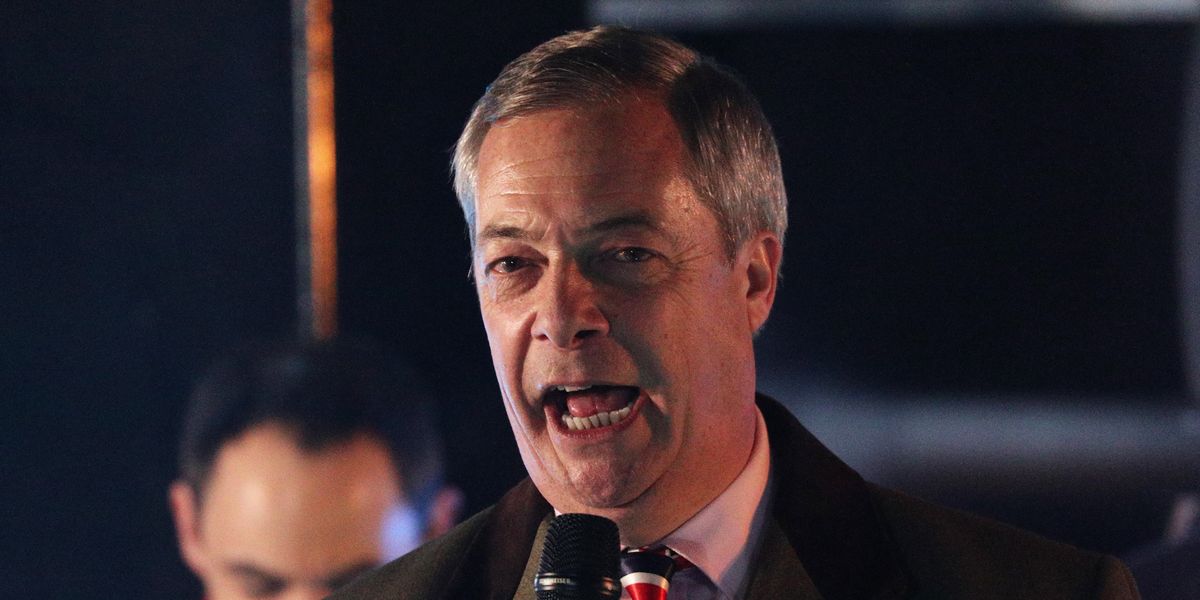Even the most hardened Remainer must acknowledge one benefit of our exit from the European Union. With elections right across England last Thursday and a general election later this year, we will at least be spared having to go to the polls on June 6 for the EU Parliamentary elections.
Oddly, those most regretting that we no longer elect MEPs might be Richard Tice and Nigel Farage. No, I’m not suggesting that the leading lights of Reform UK yearn once again to feel the warm embrace of the Brussels bureaucracy. However, it was the European Parliamentary elections which also provided such a boost of electoral adrenaline to Ukip and the Brexit Party. If we were still sending MEPs to Europe, Reform would fare very well indeed in such elections. They might even have topped the poll.
What is intriguing is that parties in the mould of Reform UK look set to perform very strongly right across the continent. It wouldn’t be fair to describe these as sister parties of Reform – the populist revolt across Europe comes in a variety of different flavours. The key thing they share in common is scepticism about how the EU project is developing and an ability to marshal enthusiastic support from those who are disillusioned with mainstream, legacy political parties.
If anything, the UK is a little behind in terms of the populist wave that is sweeping the Western world. In France, for example, the Gaullists and the Socialists – who dominated post-war politics for decades are mere shadows of their former selves. In Italy, Giorgia Meloni’s Brothers of Italy have propelled her to the office of Prime Minister. The Alternative for Germany party has grown from missing the 5 per cent threshold to secure representation in the Bundestag just over a decade ago to emerging as a major challenger to the Christian Democrats on the right. The Netherlands has seen Gert Wilders’ Party of Freedom top the poll in their recent general election and the Farmers Party has also emerged as a major electoral force.
The impact on the future of the EU could be dramatic.
On some projections, eurosceptic parties will top the poll in nine countries and could perhaps place second in nine others.
This will mean that the next European Parliament will contain a very substantial cohort which is deeply sceptical about the inexorable process of ever-deeper integration.
The cosy, establishment relationship between the centre-right Christian Democrats and the left-of-centre Social Democrats may no longer be the key driver of policy decisions. Already, those in the former bloc (the so-called European People’s Party) are considering whether they need to forge alliances with those on the insurgent populist right.
MORE AGENDA-SETTING OPINION:
None of this means the EU project is going to collapse overnight. Oftentimes eurosceptics in the UK have underestimated the resilience of the EU and its institutions. For all its failings, the single European currency has survived for a quarter of a century and does not appear to be on the cusp of imminent collapse. However, the EU as a whole is going to need to rethink its overarching strategy. The immediate, almost kneejerk, response by the establishment to any failing on the EU’s part is typically a clarion call for still greater and deeper integration.
Only last December, former Italian prime minister and European Central Bank chief, Mario Draghi, suggested the EU should become a “single megastate”. That is going to become a less and less credible approach and is one guaranteed to drive even more voters to plump for more populist, realistic and nationalistic options on their ballot papers.
Next month’s European elections won’t herald the end of the European project. But it will prove that more and more voters want less Europe rather than more of it. Eventually, the establishment will have to bend to those demands.

